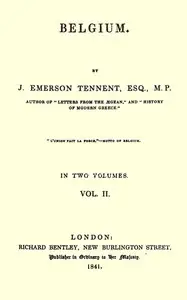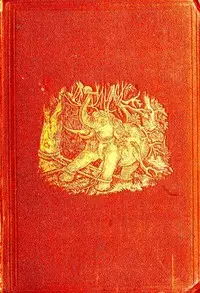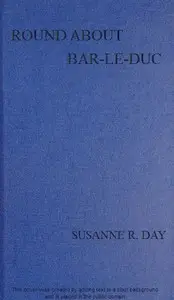"Belgium, Vol. 2 (of 2)" by Sir James Emerson Tennent is a historical account written in the early 19th century. This volume delves into the intricate landscapes, politics, and culture of Belgium during a period marked by revolutionary fervor and national identity formation. Tennent examines the architectural and artistic heritage of cities like Brussels and Antwerp, reflecting on both their grandeur and the tumultuous political backdrop of the time. The opening of the work introduces readers to significant sites in Brussels, such as the royal palaces and the Belgian parliament. Tennent vividly describes the opulence of the Palace of the Prince of Orange, now a symbol of the political upheaval of the revolution, as well as the simple yet functional Palais de la Nation, where the Belgian Assembly convenes. He narrates unique historical anecdotes, particularly highlighting the chaotic events surrounding the revolution of 1830, including a dramatic English experience at the Hôtel de Bellevue during siege warfare. Overall, this beginning sets up a detailed exploration of Belgium's heritage intertwined with its evolving identity, laying a foundation for discussing the nation's political struggles, artistic achievements, and economic conditions. (This is an automatically generated summary.)

Belgium, Vol. 2 (of 2)
By James Emerson Tennent
"Belgium, Vol. 2 (of 2)" by Sir James Emerson Tennent is a historical account written in the early 19th century. This volume delves into the intricate...
Sir James Emerson Tennent, 1st Baronet, FRS was a Conservative Member of the United Kingdom Parliament for the Irish seats of Belfast and of Lisburn, and a resident Colonial Secretary in Ceylon. Opposed to the restoration of a parliament in Dublin, his defence of Ireland's union with Great Britain emphasised what he conceived as the liberal virtues of British imperial administration. In Ceylon, his policies in support the growing plantation and wage economy met with peasant resistance in the Matale Rebellion of 1848. In recognition of his encyclopedic surveys of the colony, in 1862 he was elected a Fellow of the Royal Society.

















